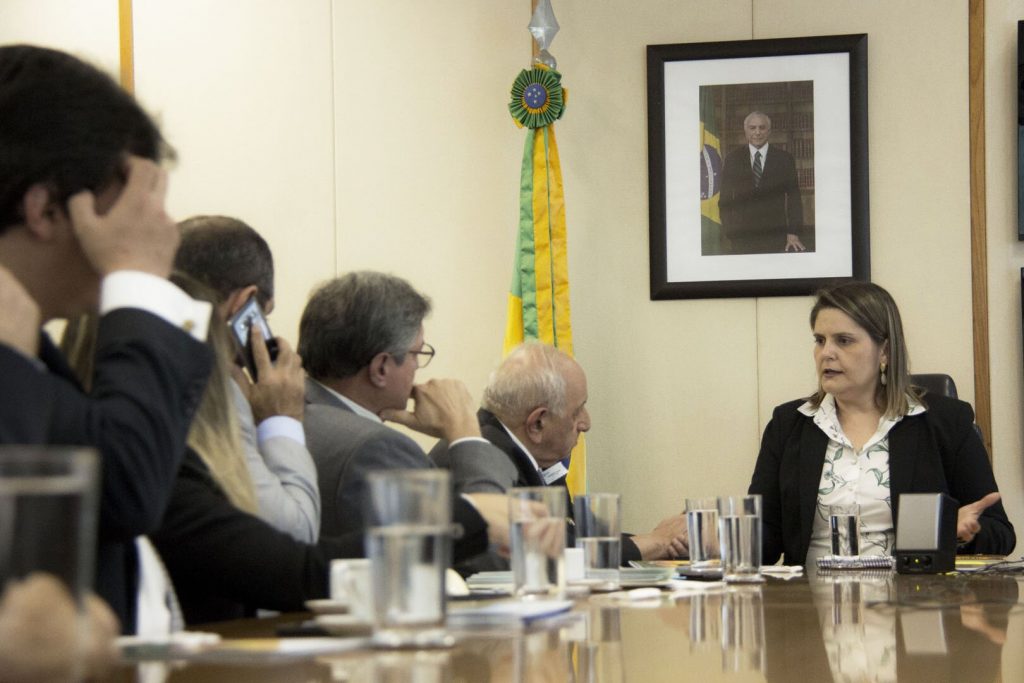São Paulo – Brazil is planning to attract Arab investment into its Export Processing Zones (EPZs), industrial areas which offer advantages to exporters. Plans also include building ties with Arab free zones.
The subject was addressed this Wednesday (11) at a meeting in Brasília, headed by the Executive Secretariat of the Council of Export Processing Zones (SE/CEPZ), and attended by Arab Brazilian Chamber of Commerce CEO Michel Alaby and by delegates from EPZ Pecém – Ceará and EPZ Parnaíba – Piauí. The Secretariat is an arm of the Brazilian Ministry of Industry, Foreign Trade and Services.
CEPZ executive secretary Thaíse Pereira Pessoa Dutra said the Brazilian government is looking to add value to the production chain via EPZs. The goal is to encourage the manufacturing of value-added goods for export. “Brazil is already known for being competitive in foreign trade when it comes to primary chains,” she says.

Thaíse believes the focus of EPZs matches the needs of Arab markets, which are greatly concerned with food security. The idea is to have Arabs invest in EPZs in Brazil and then have the goods exported back into their countries. Thaíse believes the projects in EPZs could even be focused on goods which Arab countries are interested in, like animal protein.
The executive secretary attended the Brazil-Arab Countries Economic Forum, in São Paulo, in early April, and had talks with several Arab delegates, including executives from organizations and free zones. The Forum was also attended by executives from EPZs in Bataguassu (MS), Uberaba (MG) and Pecém (CE), all in Brazil.
The CEPZ will be at the World Free Zones Organization International Conference on April 30 and May 1 in Dubai, UAE, and plans on setting up meetings with local free zones to discuss the cooperation and information sharing. During the Conference, the idea is to speak with free zones in other Arab countries.
Thaíse believes that in order to bring in Arab investors, one must comprehend their culture, investment-wise. She wants to rely on local free zones to this end, and to get help from them in attracting investments from the region to Brazilian EPZs.
Right now, there’s one EPZ active in Brazil – in Ceará – and 19 are being implemented. Construction of an EPZ in Piauí is on the verge of completion. The more recent EPZ projects are part of a second generation. Investment in these facilities is prospected for at early stages, instead of shopping for investors after the zone is complete.
These zones are designed for exporting companies, which get a 20-year benefits package, including exemption from taxes including the import tax (IPI), Cofins and PIS/Cofins, and from licenses unrelated to national security and environment, among other advantages. The benefits apply to companies which export at least 80% of their installed capacity.
Thaíse discusses the impact of EPZ Pecém on the state’s economy. Exports from Ceará soared by 62.5% last year on the back of the free zone, which is home to Companhia Siderúrgica do Pecém (CSP), which exports steel sheets. Semi-finished iron and steel exports from the state came out to USD 1.04 billion in 2017, accounting for 50% of total exports from Ceará.
Translated by Gabriel Pomerancblum




